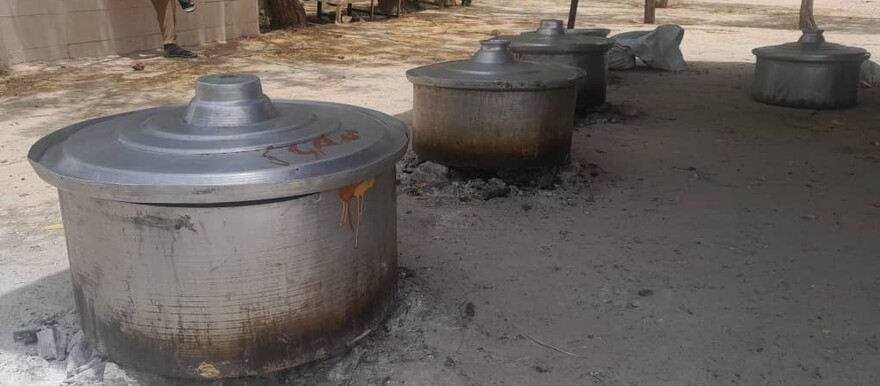The Kosti Culture and Development Organization has continued with its mission of offering Ramadan breakfast, known as iftar, to 18 sheltering houses within White Nile State’s Kosti town in Sudan to alleviate challenges faced by displaced persons.
The meals include lamb soup with bread and rice as well as lentils and dates.
Khalid Kambal, the Executive Director of the Kosti Culture and Development Organization, reports that they are serving Ramadan breakfast to a total of 4,112 individuals across 18 centers. He underscored the importance of community efforts and partnerships with Kosti natives living abroad, as well as Sudanese doctors in America who support the kitchen’s operations.
The organization has been providing meals to new arrivals for close to eight consecutive months.
According to Kambal, the “Bread from Your Bag” initiative, which gathers donations to sustain the kitchen’s services, has had a significant response from the city’s community.
The initiative, launched approximately seven months ago by the Kosti Culture and Development Organization, aims to cover the cost of meals along with charitable donations from Kosti natives abroad and local philanthropists.
Since the war broke out in Sudan on 15 April, thousands of people fled from Khartoum and other places to Kosti and the organization has been consistently providing meals to sheltering houses. Despite facing challenges in securing support to sustain the service, the provision of meals to the centers has remained uninterrupted.
Hawa Ibrahim, who recently arrived at the Sharqah center, commends the meal provided as suitable and beneficial for many in need. She said that some of the beneficiaries solely rely on the meals provided by the organization due to their inability to provide themselves with a meal.
Ibrahim emphasizes that rice and eggs are particularly suitable for children.
For his part, Abubakr Jamal, another new arrival from Khartoum who resides in the Al-Shahida Arkaweet center, expresses satisfaction with the meals, noting that some depend entirely on them. He expresses gratitude for the organization’s support, especially in the absence of similar services from other organizations.




